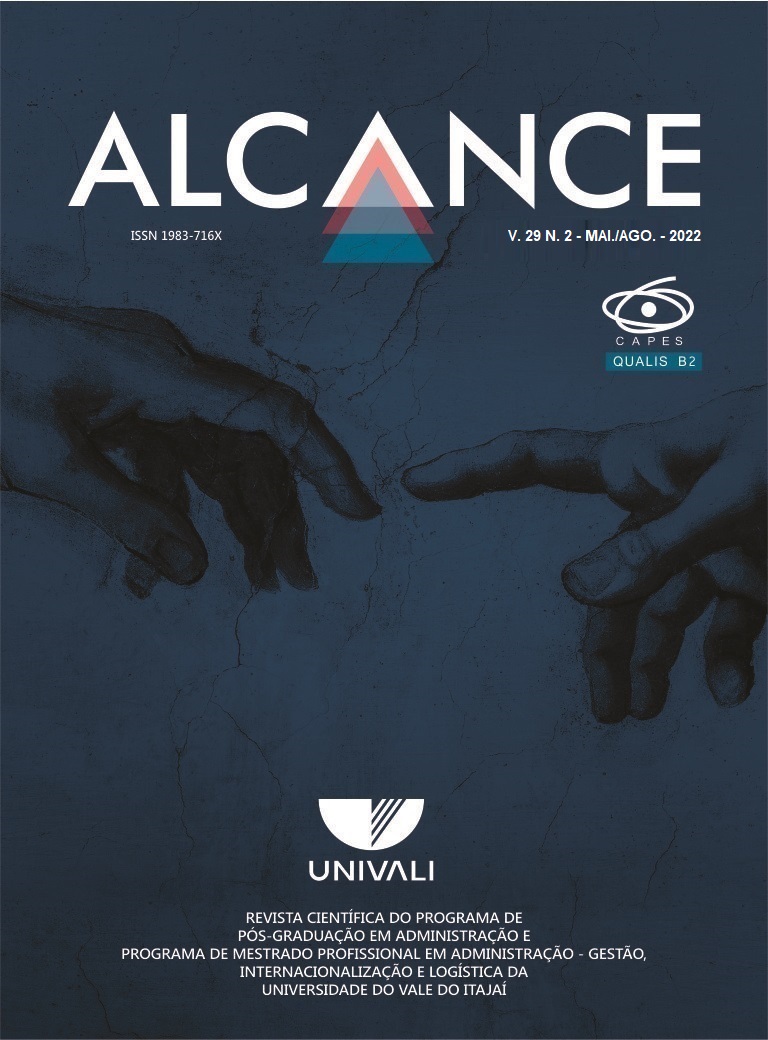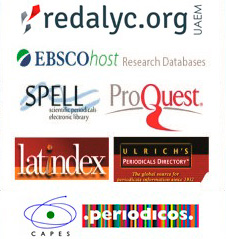ESSAY ON BLINDNESS: THE PATHS OF CAMARÕES GESUND IN THE COVID-19 CRISIS
DOI:
https://doi.org/10.14210/alcance.v29n2(Mai/Ago).p241-261Keywords:
Dynamic Capabilities, Sensing Capacity, Seizing Capacity, Transforming Capacity, Teaching CaseAbstract
Dilemma: the teaching case presents the dilema of a company in the marine shrimp segment, the Camarões Gesund, given the moments of crisis experienced during the Covid-19 pandemic. Return to export, considering previous experience, or focus on serving the domestic market by exploring new segments.
Educational purpose: the case constitutes an opportunity for reflective learning and understanding of how the company's past experiences, either in coping with crises or in applying new strategies, contribute to the development of an organization’s dynamic capabilities
Contextualization: this teaching case describes the challenging situations faced by Camarões Gesund in times of crisis, in particular the one caused by the Covid-19 pandemic. At a time when 90% of its revenue came from restaurants, they had to remain closed for more than one hundred days during the pandemic, maintaining, after this period, limitations on face-to-face service. In this sense, the aim of the case is to contribute to student's reflections in times of crisis experienced by the company, especially those generated by pandemic.
Main theme: application of dynamic capabilities concepts in the assessment of situations and decision making in moments of crisis.
Audience: Business Administration undergraduate courses and professionals in a technical or managerial career.
Originality: in addition to presenting a dilemma in a pandemic context, an innovative aspect of the case is the analogy with the blindness novel as one of the points of reflection. From the didactic and pedagogical point of view, it is proposed alternatives for applying the case also in online classes, adopting interactive tools.
References
Barney, J. (1991). Firm Resources and Sustained Competitive Advantage. Journal of Management, 17(1), 99-120. https://doi.org/10.1177/014920639101700108
Costa, M. P. (2020). Resenha do leitor: “Ensaio sobre a Cegueira”. 2017. Recuperado de: <https://guiadoestudante.abril.com.br/blog/estante/resenha-do-leitor-8220-ensaio-sobre-a cegueira-8221/>.
Farzaneh, M., Ghasemzadeh, P., Nazari, J. A., & Mehralian, G. (2020). Contributory role of dynamic capabilities in the relationship between organizational learning and innovation performance. European Journal of Innovation Management, ahead-of-print. https://doi.org/10.1108/EJIM-12-2019-0355
Mohaghegh, M. & Größler, A. (2021). Exploring organizational problem-solving modes: a dynamic capabilities approach, Management Decision, ahead-of-print. https://doi.org/10.1108/MD-08-2020-1097
Saramago, J. (1995). Ensaio sobre a Cegueira. São Paulo: Companhia das Letras.
Teece, D. J. (2019). A capability theory of the firm: an economics and (Strategic) management perspective. New Zealand Economic Papers, 53(1), 1-43. https://doi.org/10.1080/007 79954.2017.1371208
_____. (2018). Dynamic capabilities as (workable) management systems theory. Journal of Management & Organization, 24(3), 359-368. https://doi.org/10.1017/jmo.2017.75
_____. (2007). Explicating dynamic capabilities: the nature and microfoundations of (sustainable) enterprise performance. Strategic Management Journal, 28(13), 1319-1350. https://doi.org/10.1002/smj.640
Downloads
Published
Issue
Section
License
Copyright (c) 2022 Revista Alcance

This work is licensed under a Creative Commons Attribution 4.0 International License.
In this statement of responsibility, I/we certify that I/we participated in the preparation of the attached article, thus making my/our responsibility for its content public. I/we declare that we have not omitted any links or financing agreements between me/us and entities and/or institutions that may have an interest in the publication of this article. I/we certify that the article is original and the work, either in total or in part, or any other work of my/our authorship with substantially similar content, has not been nor will be sent in any format (printed or electronic) to another periodical while its publication is being considered by Revista Alcance. In this consent form, the associated authors give permission to Revista Alcance, in the case of approval by its Editorial Board, to publish the attached article in electronic copy in a regular edition of the journal and to load it to the database.

